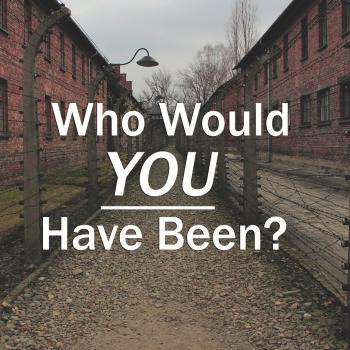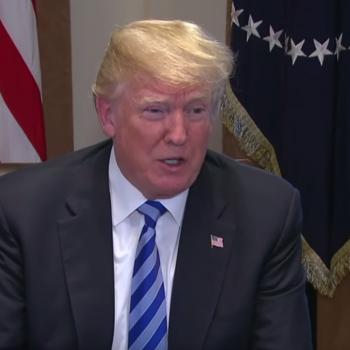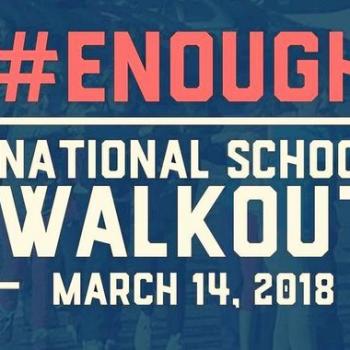Donald Trump has yet to take the oath of office, but that hasn’t stopped the party of Christian values and pro-life ethic to already begin stripping healthcare away from the poor and vulnerable.
Because, you know, nothing says “We love pro-life values” as much as taking healthcare away from people who will die without it– but that’s a topic for a different post.
Conservatives will often tell me that providing for the poor and needy is the role of private charity, not government. While I certainly think that might be a wonderful ideal in theory, in our cultural context it is grossly impractical on a variety of levels.
First and foremost, if the idea of “voluntary charity instead of government programs” were to work, we would need the rich to give money to charity. But there’s just one problem with that:
They don’t.
In fact, studies have shown that the rich give on average only 1.3% of their income to charity. By comparison, the poorest Americans give more than double that amount.
As social anthropologists have tried to understand why the rich give so little, and why in comparison the poor give so much, the general theory is that the rich are simply so isolated from the rest of the world that they are rarely confronted with the realities of poverty, or challenged to have empathy that’s followed by generosity. If your entire life is lived in a bubble with people who have every last need and want met, you simply aren’t forced to recon with how the rest of the world lives– so your charitable giving reflects that.
As the Atlantic previously reported, studies from UC Berkeley and Indiana University School of Philanthropy show that low and middle income neighborhoods give proportionally more to charity than areas with a higher rate of financial affluence. In fact, the discovery that rich people who live in diverse neighborhoods give more to charity than the rich who live in affluent neighborhoods, seems to support the notion that when the upper class is detached from the rest of us, they give very little to charity.
The basic reality we have to contend with, for whatever reasons may be behind it, is the truth that the rich in America are significantly more greedy than low-income Americans. And one cannot expect low-income Americans to shoulder the burden of funding enough private charities to make sure that all the poor and sick in America have their basic needs met.
But I know where you’re going: 1.3%, when coming from the rich, is still a lot of money you say.
That may be true if one looks at dollar figures. But one must also consider who the rich give that 1.3% to— and it’s not the poor.
As also reported by the Atlantic:
“Wealth affects not only how much money is given but to whom it is given. The poor tend to give to religious organizations and social-service charities, while the wealthy prefer to support colleges and universities, arts organizations, and museums. Of the 50 largest individual gifts to public charities in 2012, 34 went to educational institutions, the vast majority of them colleges and universities, like Harvard, Columbia, and Berkeley, that cater to the nation’s and the world’s elite. Museums and arts organizations such as the Metropolitan Museum of Art received nine of these major gifts, with the remaining donations spread among medical facilities and fashionable charities like the Central Park Conservancy. Not a single one of them went to a social-service organization or to a charity that principally serves the poor and the dispossessed. More gifts in this group went to elite prep schools (one, to the Hackley School in Tarrytown, New York) than to any of our nation’s largest social-service organizations, including United Way, the Salvation Army, and Feeding America (which got, among them, zero).”
So let me summarize for you:
Conservatives say we should repeal Obamacare because it’s the role of “private charity” to take care of the poor, not the government. For that grandiose ideal to work however, one would need the rich to be generous givers to charity– and not just any charities, but ones that actually care for the poor and sick.
But in America that’s not happening. The poor not only give double what the rich give to charity, they’re essentially the only group of people giving to the types of charities that actually do serve the poor.
The rich? They give a measly 1.3% to charity– and what they do give is going to prep schools and art museums.
So tell me again how this plan works? How do we help the nation’s poor and sick by total reliance on private charity?
I’m genuinely curious to hear your plan– and don’t tell me it’s advantageous tax policies, because the rich already have those to such a degree that our mega-rich incoming president boastfully doesn’t pay taxes.
The reality in America is this: the rich are greedy, and the people who overwhelmingly give to the poor are the poor themselves.
Until that dynamic changes, we’ll continue to desperately need provisions such as the Affordable Care Act– and repealing it will be nothing less than violent assault on the least among us.













